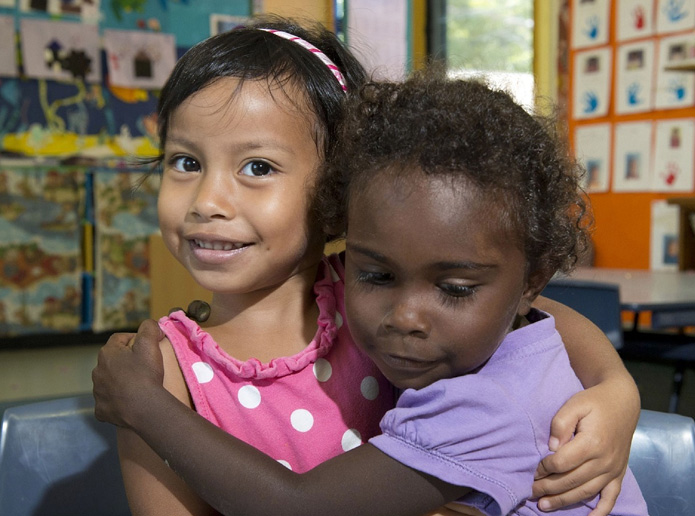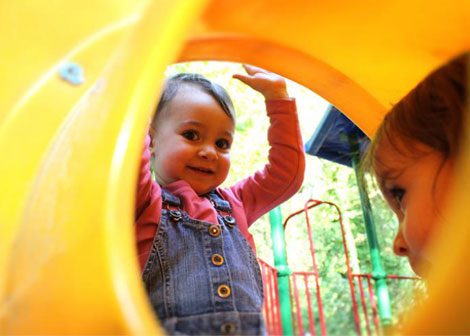Screens are all around us. From phones to the TV, tablets to computers, modern children are exposed to screens from a very young age.
Although children are often entertained by programs they see on these devices, screen time for very young children does not help them learn.
Babies
Babies are wired from birth to seek out their caregivers face. It is your face that your baby will respond to and learn the most from – emotions, self-regulation and their place in the world.
Research shows that children under two years of age do not get any benefit from screen time, even from programs that are made for kids. The brains of children under two years of age have not developed enough to interpret abstract images they see on screen.
Babies learn best through real-life interactions with you and other people in their environment.
Toddlers
Research is now showing that the more screen time a child experiences, the more likely they are to have a delay in language development. Children over two years of age can learn from watching the TV and interactive technology; however, the greatest benefits happen when the screen time is shared with an adult.
The amount of screen time your toddler watches with you should be very limited. The content should be high-quality and appropriate for their age.
Sit with your child if they are looking at a video or playing a game on a device. Talk about what they are doing and what they can see. Relate their learning to experiences they have had in real-life. For example, if your child is watching dogs running around on the TV, talk about your own dog or a dog you have seen at the park recently. Talk about the sound a dog makes, what they look and feel like and how they act.
Older children
It is important that screen time for older children is also limited. This gives them time for other types of play which will allow them to use their imagination and be creative. It also gives them time to be active and play outside.
Children can often be frightened or confused by what they see on TV, so they will benefit most if you watch with them. Always make sure that your child is watching programs that are made for children and appropriate for their age.
How much screen time should my child have?
The American Academy of Pediatrics recommends the following:
- No screen time for children under two years of age (except for video-chatting with people they know well).
- Screen time should always be shared with an adult.
- Children two to five years of age should watch a maximum of one hour per day. Screen time should be high-quality children’s programming and shared with an adult.
- Children over five years of age should have strict limits on the amount of screen time they watch. Content should always be age appropriate.
Other ways to play and learn
If you are stuck for ways to keep your child busy and away from the screen then check out the following articles for better ways to help your child learn:
Key points to remember
- Children under two years of age do not learn from screen time.
- Children should only watch small amounts of quality children’s programs.
- Always watch with your child and share the experience.
- Always make sure that what your child is viewing is appropriate for their age.
- Balance screen time with green time (outdoor play).
Want to know more?
The Raising Children Network – Screen time
The Hanen Centre – Creating safe(r) screen time for your child
Talkable – Screen time and language development







